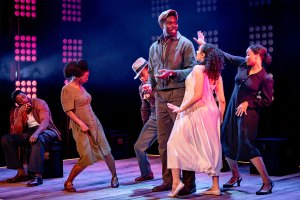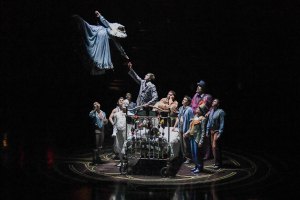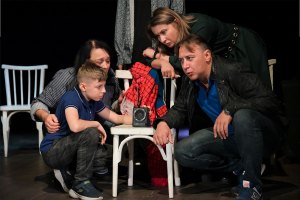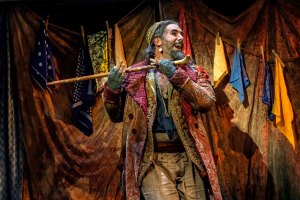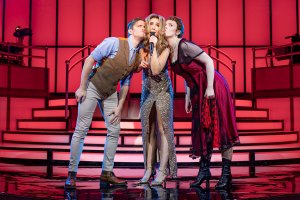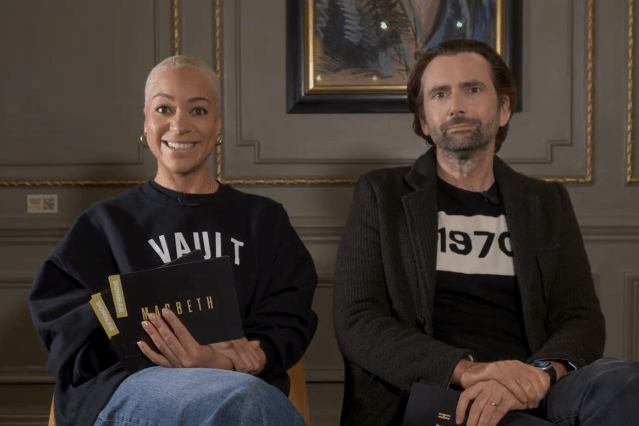Edinburgh Fringe Q&A: Jamie Armitage on An Interrogation
The SIX director discusses his debut play
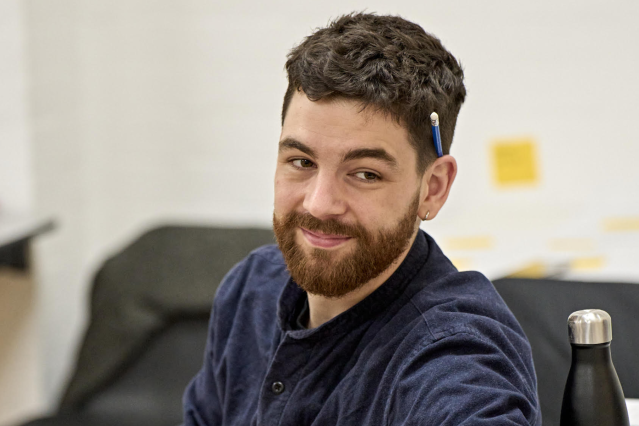
Returning to the Edinburgh Fringe after co-directing the international sensation SIX: The Musical, Jamie Armitage discusses the world premiere of his tense and chilling debut play.
What was the impulse for you to start writing An Interrogation?
I’ve always been fascinated by true crime and found the original case to be so unusual for how the interrogation room was the centre of the action where the truth of the case came out. It felt like its own perfect dramatic conflict. Initially my thinking was to explore this as a verbatim story, but then I felt that these ideas could be pushed further and explored more deeply by shifting it away from its original Canadian setting into a more recognisably British world. And that’s when the story really sparked into existence in my mind.
This is also your debut play – how has it felt finding your voice and putting pen to paper?
I don’t know if I’d say I’ve necessarily found my voice yet, but the writing experience has been a thrill. There were some wildly productive days at my computer, and many more painfully slow ones, but eventually something resembling a first draft existed which I’ve loved refining and clarifying. The thought of people seeing it now, after it’s only existed in my head for so long, is scary, but I’m also so intrigued to see the response. With every project, there are always nerves about sharing a story that you find interesting and exciting with an audience, and hoping they have the same experience.
The show is based on a true story – why do you think it’s one that is compatible with live performance?
When I first watched the original recording of the police interview, I was instantly transfixed and the next moment I looked up I realised 90 minutes had passed without my noticing. The back and forth, the subtle manoeuvring in a contest between two people with words as their weapons was completely engrossing. The contained setting, the tension, it felt so theatrical to me in a way that could really embrace what theatre as a medium does uniquely well – giving an audience a powerful emotional experience which is amplified by being in that room at that moment in time.
This feels like a very different offering to your internationally recognised work on SIX…
You can certainly say that. I’m always excited by a variety of stories and feel very fortunate that I can pursue these different interests. I suppose what connects these seemingly contrasting projects is my desire to create singular theatrical experiences. Both shows try to bring the excitement of other mediums – pop concerts and TV detective thrillers – into the world of theatre. Hopefully An Interrogation is similar to SIX in that it creates a big collective emotional experience, though this time it’s more likely to be suspense and discomfort rather than the high level joy audiences experience with SIX.
How do you approach a show differently when you’re both writing and directing?
It’s a day by day learning process. I’ve finished our rehearsal draft, and now I need to focus on it primarily as a director to try and deliver the best version of the script in my hand. Of course, if there are lines or sections which need changing, I’ll make those adjustment but my main focus is now working with our phenomenal cast and team to bring this story to life in the most gripping show possible.
Can you also discuss the role of video in your production?
This is a fun element of the production which I’m incredibly excited about it. Throughout the show there will be cameras live-streaming the action from different angles which are then projected behind the actors. The idea came from a report I read about how the angle which someone is filmed from can affect our perception of their testimony – do they seem more anxious if the camera’s zoomed in and we can see every flicker of their eyes? The show explores our changing perspectives of different people, so the cameras and projection, and how they affect the audience experience, embody this.
Can you discuss your own experiences with the Edinburgh Fringe, and the role it’s played in the development of your career?
Even before SIX, I went up to the Fringe every year as a student. As an actor, a performer in a sketch show, and directing a one-person show. I feel like the vital experience it gives is sharpening your understanding of what will make your show stand out from the thousands of others. You have to really think about what special experience you can offer an audience which will make your show worth a slot in their busy schedules. And that’s a question I ask on all my productions: how do we work to earn an audience’s attention and justify the commitment of their time to watching our show?
How has it been working with a producer like Ellie Keel, who has a fantastic track record of ushering new writers into the limelight?
I could not ask for a better person to be collaborating with on my first play. She was the producer I most wanted to work with as she has an exceptional track record of guiding new plays to stage. Working together has only confirmed this and shown what a phenomenal understanding and knowledge of theatre she has, which has been essential on the delicate journey of brining a new play to the Fringe.
How do you think your own experiences writing have altered your perspective on other writers you have collaborated / hope to collaborate with?
While it’s thrilling to fill a blank page with dialogue, it’s also an exposing experience. In your head exists the most perfect and brilliant show in the world ever, but then it’s so hard to translate that vision into something real on the page. I hope this experience has expanded my understanding of this strange process and that knowledge improves all my future collaborations with writers.
The Edinburgh Fringe has undergone some significant changes over the last few years — what do you think the landscape is like for emerging creatives trying to make their mark?
This will be my first time there in five years, so I’ll be very curious to see how the Fringe itself is. What I’ve already noticed is how monstrous the costs for accommodation have become. Housing the team is the largest element of our entire budget. These costs feel increasingly insurmountable barrier for emerging creatives. Unless something is done to address this, then the Fringe will no longer be a place that is viable for emerging artists.
An Interrogation is at Summerhall from 2 to 27 August 2023 (not 14 and 21). Look out for all our coverage from Edinburgh 2023.




